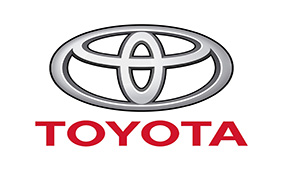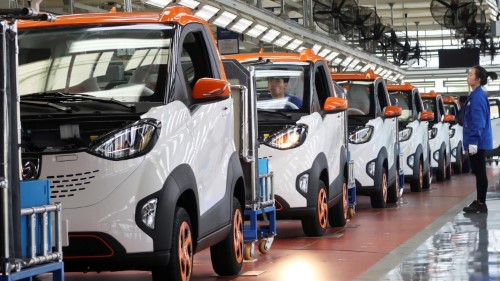
More global automakers likely to collaborate with local carmakers in China to accelerate EV output

Collaboration between foreign automakers and local peers on EV production started in 2017 when government revealed plans to introduce a carbon credit program to push manufacturers into hiking output of electrified vehicles.
In June 2017, Volkswagen Group signed an agreement with Jianghuai Automobile Co. to produce EVs for China market. Ford Motor Co. and BMW Group also collaborated with Zotye Automobile Co. and Great Wall Motor Co., respectively next year.
VW, Ford and BMW have all chosen to incorporate new EV production ventures with local partners, which are subject to lengthy regulatory approval in China. Renault this month formed a joint venture with Jiangling Motors Group’s EV subsidiary by purchasing a 50 per cent stake in the subsidiary for RMB 1 billion.
Through these joint ventures, VW, Ford, BMW and Renault expect to churn out affordable Evs in China market under the ventures’ proprietary brands. The agreements will allow these four global automakers to share the carbon credit points generated by the EV joint ventures
As Toyota wants more commands in their local partnership, the company has signed JV agreement last week with BYD Co., China’s largest EV maker and second largest EV battery supplier. The jointly developed EVs, including sedans and crossovers, to be launched in China market by 2025 will be distributed under the Toyota brand.
Sales of electrified vehicles such as EVs, plug-in hybrids and fuel cell vehicles registered a rise of 50 per cent to approach 617,000 in H1 2019. As the subsidies on EV are to be phased out at the end of 2020, the government wants to further push electrified vehicle production over concern of sales drop.
Under the carbon credit program, electrified vehicles have to comprise about 10 per cent of annual sales of automakers in 2019. More global automakers are expected to team up with local carmakers in near future to accelerate EV output.



Trump weighs using $2 billion in CHIPS Act funding for critical minerals

Codelco cuts 2025 copper forecast after El Teniente mine collapse

Electra converts debt, launches $30M raise to jumpstart stalled cobalt refinery

Barrick’s Reko Diq in line for $410M ADB backing

Abcourt readies Sleeping Giant mill to pour first gold since 2014

Nevada army depot to serve as base for first US strategic minerals stockpile

SQM boosts lithium supply plans as prices flick higher

Viridis unveils 200Mt initial reserve for Brazil rare earth project

Tailings could meet much of US critical mineral demand – study

Kyrgyzstan kicks off underground gold mining at Kumtor

Kyrgyzstan kicks off underground gold mining at Kumtor

KoBold Metals granted lithium exploration rights in Congo

Freeport Indonesia to wrap up Gresik plant repairs by early September

Energy Fuels soars on Vulcan Elements partnership

Northern Dynasty sticks to proposal in battle to lift Pebble mine veto

Giustra-backed mining firm teams up with informal miners in Colombia

Critical Metals signs agreement to supply rare earth to US government-funded facility

China extends rare earth controls to imported material

Galan Lithium proceeds with $13M financing for Argentina project

Kyrgyzstan kicks off underground gold mining at Kumtor

Freeport Indonesia to wrap up Gresik plant repairs by early September

Energy Fuels soars on Vulcan Elements partnership

Northern Dynasty sticks to proposal in battle to lift Pebble mine veto

Giustra-backed mining firm teams up with informal miners in Colombia

Critical Metals signs agreement to supply rare earth to US government-funded facility

China extends rare earth controls to imported material

Galan Lithium proceeds with $13M financing for Argentina project

Silver price touches $39 as market weighs rate cut outlook

















